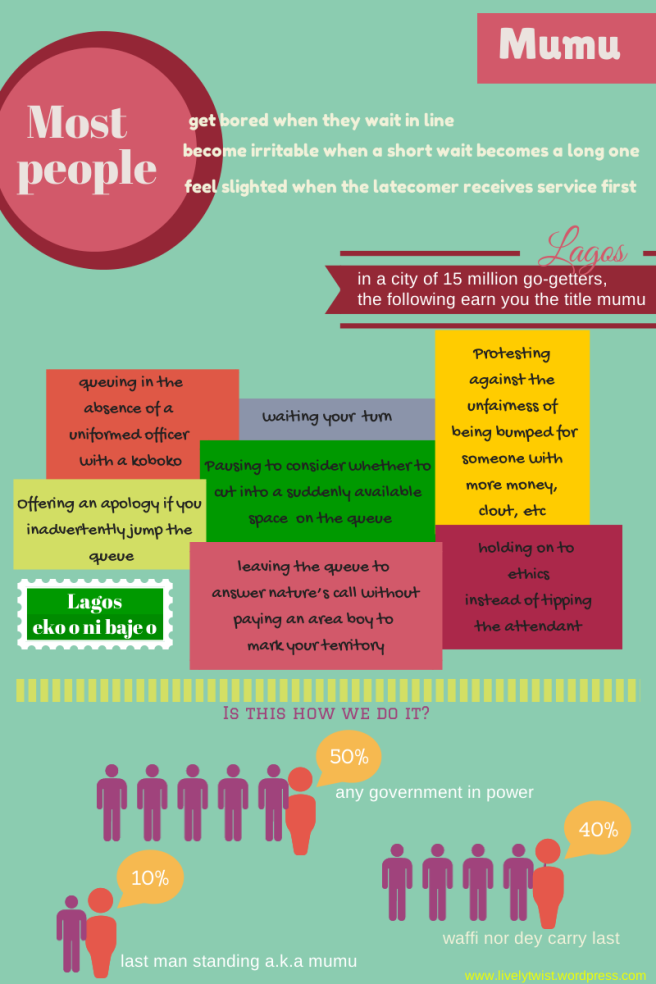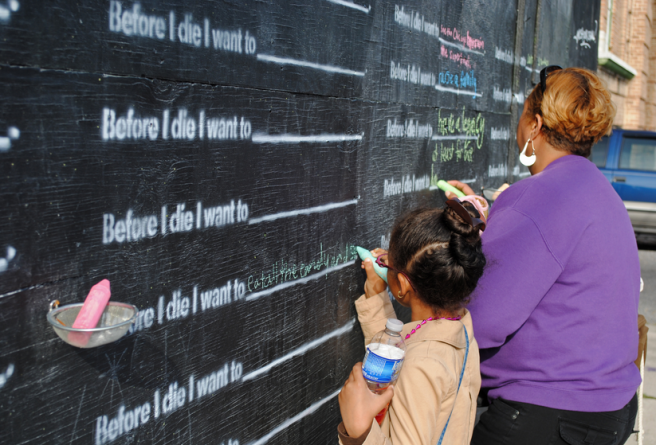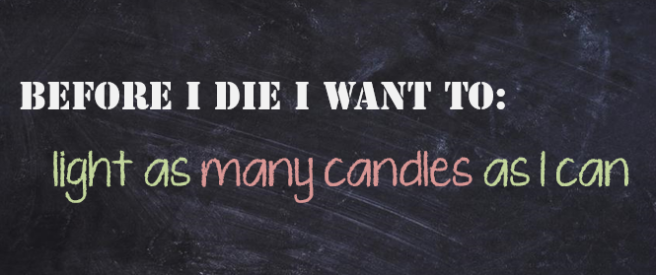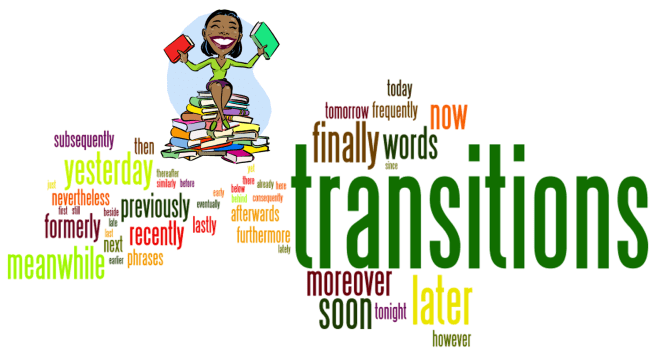Life is a series of waiting. From the doctor’s office to the travel agency, from the dentist to the foreign embassy, we queue, tapping our feet, until we are served. Smart businesses turn waiting into a pastime. Forget glossies and car magazines. Forget coffee, tea, sweeteners, and creamers. Nothing like free Wi-Fi to eat up fifteen minutes of eternal boredom.
Yet, at supermarkets or self-service restaurants, Wi-Fi, and even 3G or 4G seldom come to our rescue for transaction speed is paramount. We depend on tacit rules of queuing to bear our collective suffering and for smooth passage. For example, the loud disapproval of waiting-weary law-abiding citizens dispenses instant justice to queue-jumpers while attendants uphold the people’s verdict. Those in a hurry don’t have to be doomed to sighing, hissing, time watching, and eye rolling. They just need to approach the Queue Court of Appeal comprising all or some of the people they intend to bypass.
I returned to Nigeria with this mindset. So, when I went to a fast-food takeout, I ignored the people milling at the counter and joined what seemed like a funnel-shaped queue. It didn’t move. This was what happened: people walked in, went straight to the counter, placed their orders, were served, and walked away. Did they have a smirk as they strode out with their prize or was that my waiting-weary imagination?
Anyway, I queued on in faith, ignoring my daughter’s tug on my wrist. I glared at my son for daring to suggest that I muscle my way to the counter. I counted tiles on the ceiling when I noticed people looking at me as if I had dyed my hair lime green. But, the toughest battle by far was drowning out the soundtrack spinning in my head, “Mumu, mumu. Mumu, mumu. You are a big mumu.”
I wore my long-suffering like a green-white-green badge until somehow, I found myself at the counter. Before I opened my mouth, a lady appeared and started placing her order. I expected the attendant to ignore Queue-jumper but she took her order instead.
“Didn’t you see me on the queue? It’s my turn.” I eyed the attendant and Queue-jumper.
“How was I to know that it’s your turn?” Queue-jumper replied, looking at me, and then at the attendant, “add moi-moi, three moi-moi . . .” She faced me again, “You’ve just been standing there slacking; I don’t know what you’ve been waiting for.”
Anger rose slowly from my heart to my mouth.
I went into a tirade about how long I had been queuing and why. I expounded on the demerits of organised disorganisation, dragging the name of the management into my argument and stating that they enabled people like her frustrate the system thereby killing any hope of excellence.
When I heard giggles behind me, I paused to view the effect of my words. Some people were snickering. My son was shuffling his feet and looking at the floor. My daughter was looking at me as if she didn’t know me. I forgave them instantly. What did they know about Nigeria besides the ogbono soup and poundo, which I regularly made while we lived abroad? And the objects of my wrath? One held a bag of fast food, the other, N500 bills, and an exchange was imminent.
Another attendant came to the counter, “Madam there’s no need to shout, if you want something, please just tell us.”
Anger left my mouth and lodged in my heart.
Days later, I saw a real queue in Shoprite at The Palms Mall, people waiting to buy bread. But a friend went to the corner and gave an attendant N200 to jump the queue. Holding his N200 loaf of bread, he winked at me and said, “This is how we do it.” As he sauntered to the till, he bumped into a trolley that crashed into an aisle, causing canned goods to tumble to the floor, while those on the queue shifted their weight, dodging rolling cans.
Is this how we do it?
©Timi Yeseibo 2014
Around the web: other perspectives
India: http://junaidkhalfay.wordpress.com/2014/01/29/indians-their-best/
Oh for the love of India: http://sunderv.wordpress.com/2014/03/07/the-ubiquitous-q-crashers/
Britain: http://prettyfeetpoptoe.com/2013/01/09/queuing-the-great-british-pastime/
Australia: http://infographiclist.com/2014/02/19/ever-lose-your-cool-in-a-queue-infographic-queue/
China: Hey! Can’t you see there’s a line here? Wait your turn! by Ryan Ulrich
http://www.globaltimes.cn/opinion/top-photo/2009-07/442510.html
Photo credits:
http://pixabay.com/en/bar-restaurant-feet-legs-people-238509/
Unauthorized use and/or duplication of this material without express and written permission from this blog’s author and/or owner is strictly prohibited. Excerpts and links may be used, provided that full and clear credit is given to Timi Yeseibo and livelytwist.wordpress.com with appropriate and specific direction to the original content.
















